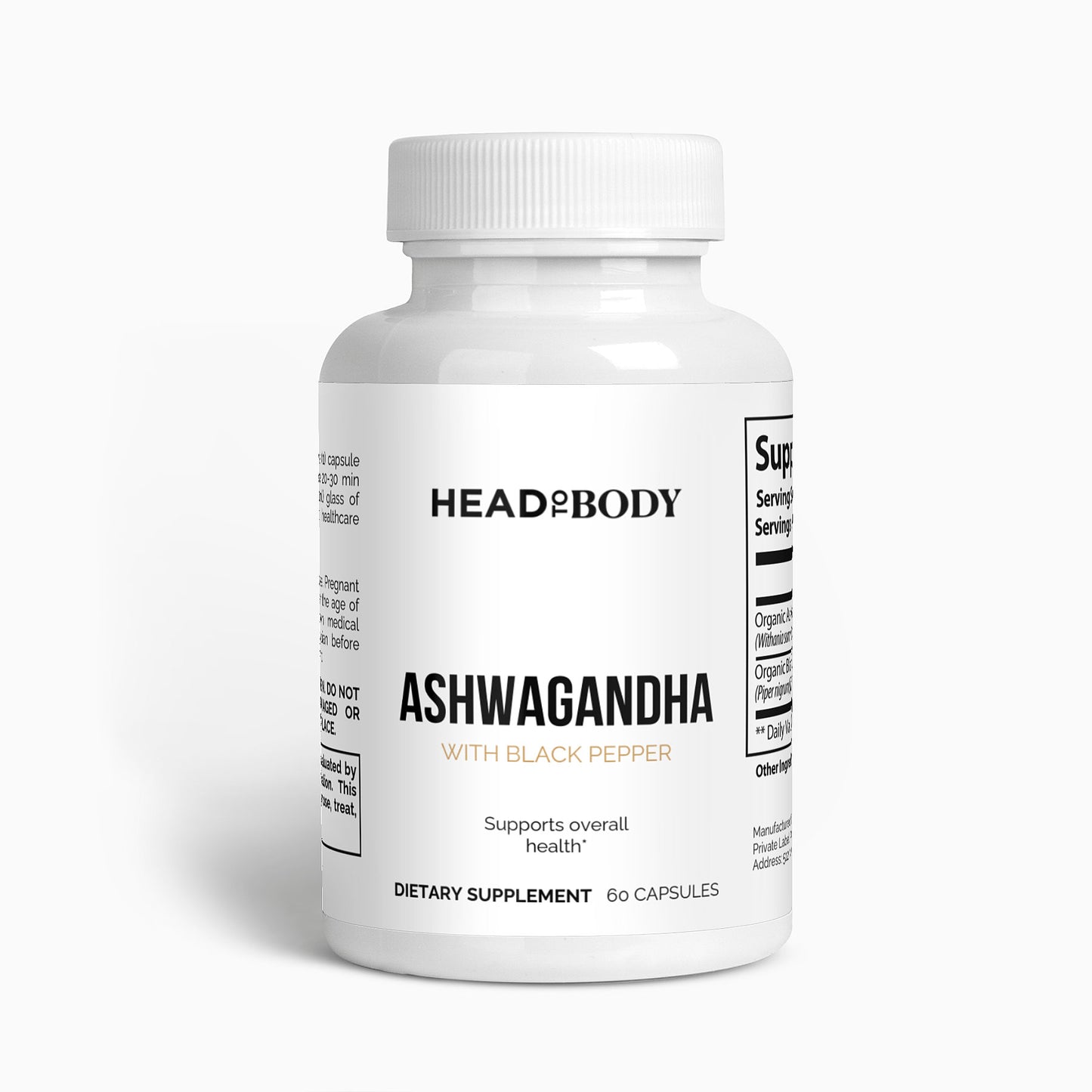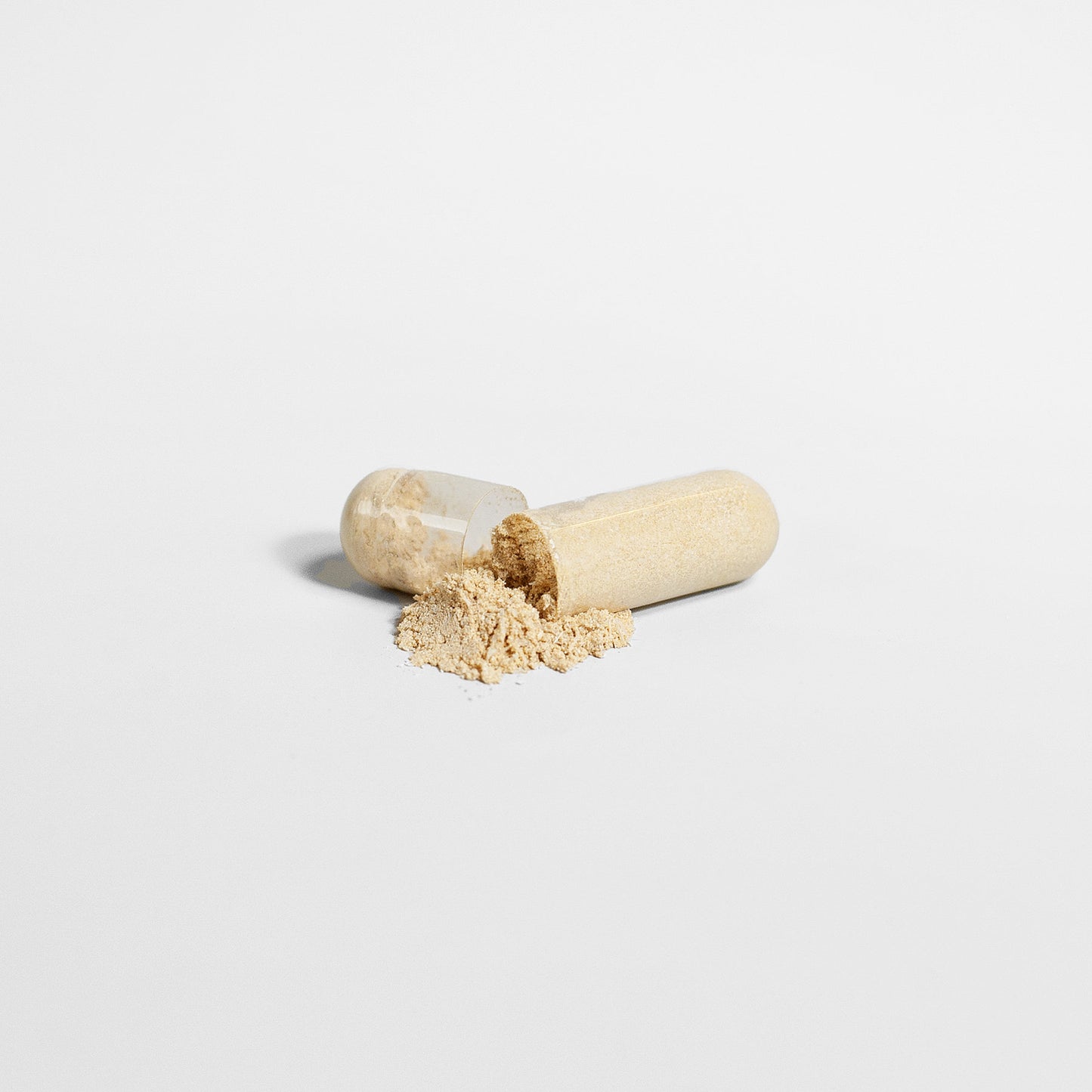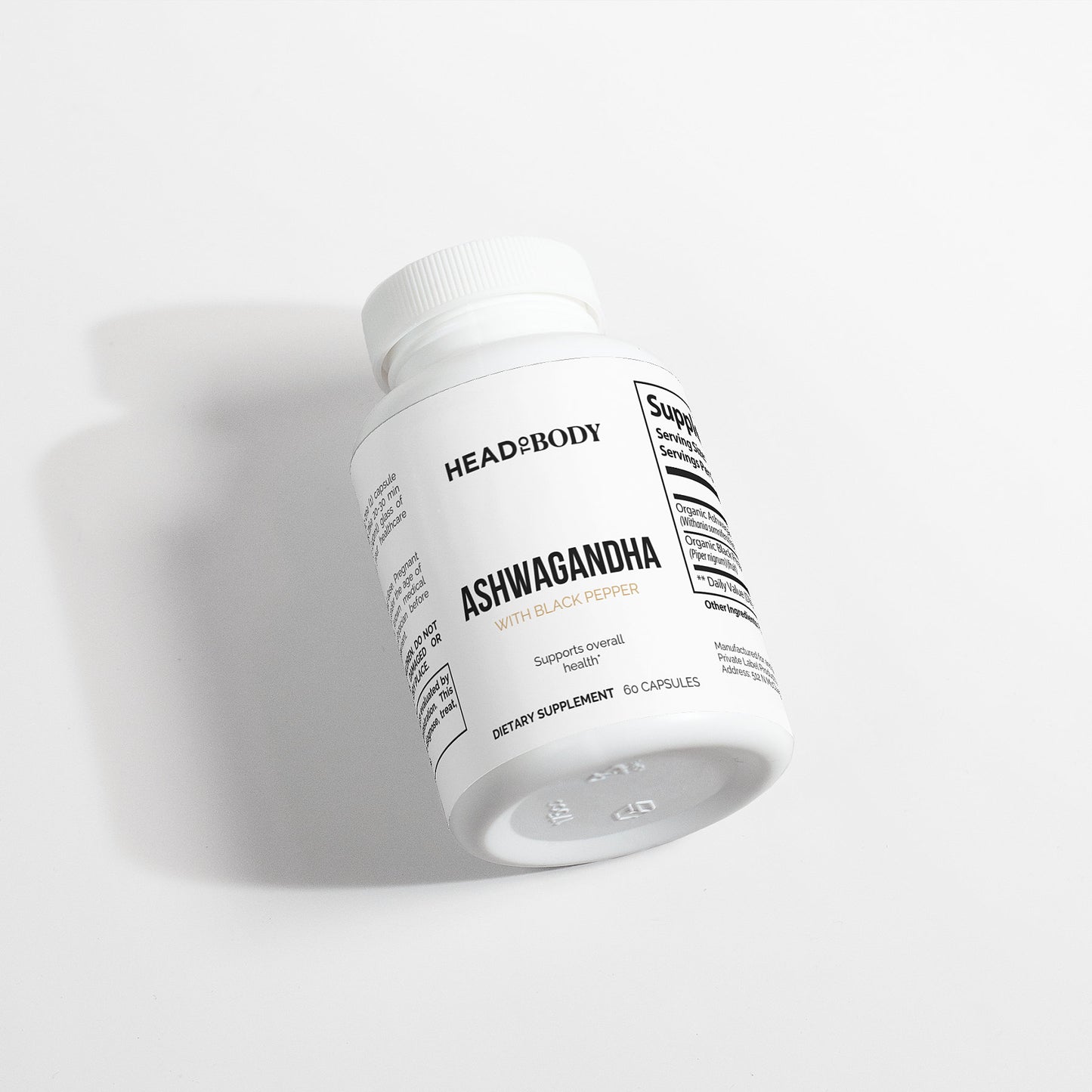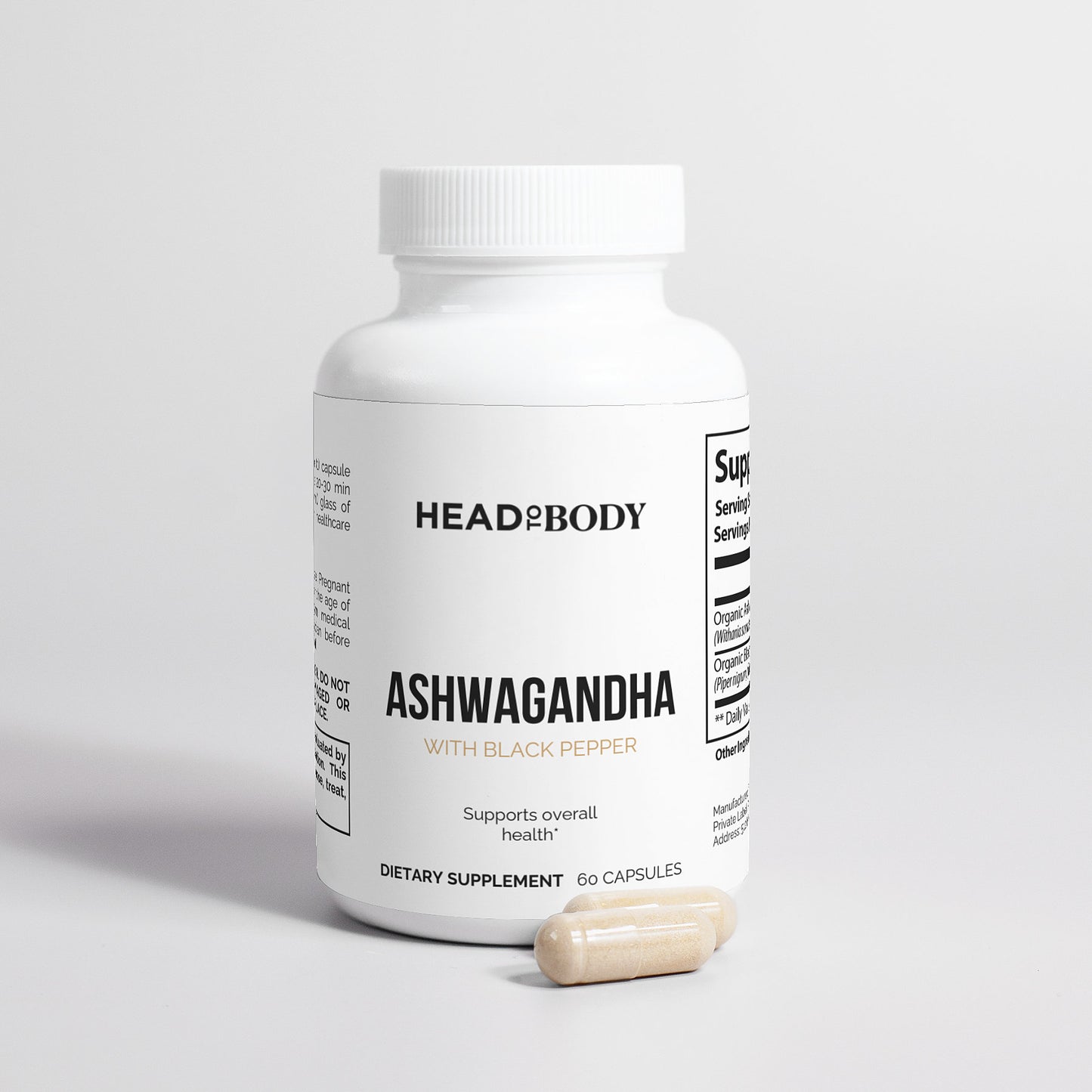Struggling to get a good night's sleep? Ashwagandha, the powerful herb from Ayurveda, may hold the key to solving your sleep woes. Known for its centuries-old reputation as a natural remedy for various health concerns, Ashwagandha has recently gained recognition for its sleep-inducing properties. In this article, we delve into the captivating world of Ashwagandha and explore whether this ancient herb can truly help you achieve a sound night's sleep.
Ashwagandha, also known as Withania somnifera, is an adaptogenic herb that has been used in traditional medicine for thousands of years. Its unique blend of bioactive compounds, including alkaloids and withanolides, are believed to provide a tranquilizing effect on the nervous system, promoting relaxation and reducing feelings of anxiety and stress. By calming the mind and soothing the body, Ashwagandha may offer a natural solution for those struggling with insomnia or restless nights.
Join us as we uncover the sleep-inducing power of this Ayurvedic herb, examining the scientific evidence behind its effectiveness and exploring various ways to incorporate Ashwagandha into your bedtime routine. Say goodbye to tossing and turning, and embrace the potential benefits of Ashwagandha on your journey towards a rejuvenating slumber.
Understanding sleep disorders
Sleep disorders are a prevalent issue affecting millions of individuals worldwide. From insomnia to sleep apnea, these conditions can have a profound impact on overall health and well-being. Insomnia, the most common sleep disorder, is characterized by the inability to fall asleep or stay asleep throughout the night, leading to daytime fatigue, irritability, and impaired cognitive function. Sleep apnea, on the other hand, is a potentially serious condition where the airway becomes obstructed during sleep, causing frequent interruptions in breathing and disrupting the sleep cycle.
Other sleep disorders include restless leg syndrome, which causes an irresistible urge to move the legs, and circadian rhythm sleep-wake disorders, where the body's internal clock is out of sync with the 24-hour day-night cycle. These conditions can have far-reaching consequences, including increased risk of cardiovascular disease, diabetes, and mental health issues.
Addressing sleep disorders is crucial for maintaining overall health and well-being. While traditional treatments, such as prescription medications and cognitive-behavioral therapy, can be effective, many individuals are turning to natural remedies like Ashwagandha to help improve their sleep quality. The growing interest in Ayurvedic and herbal solutions has sparked a renewed curiosity about the potential benefits of this ancient adaptogenic herb.
The science behind Ashwagandha's sleep-inducing properties
Ashwagandha, also known as Withania somnifera, is a revered herb in the Ayurvedic tradition, with a long history of use for its wide-ranging health benefits. Its sleep-inducing properties are attributed to its unique blend of bioactive compounds, including alkaloids and withanolides, which are believed to have a calming effect on the nervous system.
One of the primary ways Ashwagandha is thought to promote better sleep is through its ability to modulate the body's stress response. Chronic stress is a well-known contributor to sleep disturbances, as it can lead to an imbalance in the body's cortisol levels, the primary stress hormone. Ashwagandha has been shown to have adaptogenic properties, meaning it can help the body adapt to and manage stress more effectively. By reducing cortisol levels and promoting a state of relaxation, Ashwagandha may help individuals fall asleep more easily and experience more restful, uninterrupted sleep.
Additionally, Ashwagandha has been found to have a positive impact on the gamma-aminobutyric acid (GABA) system in the brain. GABA is a neurotransmitter that plays a crucial role in regulating sleep-wake cycles and promoting a sense of calm. Ashwagandha's ability to interact with the GABA system may contribute to its sleep-inducing effects, as it can help calm the mind and promote a state of relaxation that is conducive to better sleep.
Benefits of Ashwagandha for sleep
The potential benefits of Ashwagandha for sleep are well-documented in both traditional Ayurvedic texts and modern scientific research. One of the primary advantages of using Ashwagandha for sleep is its ability to reduce the time it takes to fall asleep. Several studies have shown that Ashwagandha supplementation can significantly decrease the time it takes for individuals to fall asleep, allowing for a more efficient and restful sleep.
In addition to improving sleep onset, Ashwagandha has also been found to enhance sleep quality and duration. By promoting a state of deep relaxation and reducing the impact of stress on the body, Ashwagandha may help individuals experience more uninterrupted, restorative sleep throughout the night. This can lead to improved daytime functioning, increased energy levels, and better overall well-being.
Another notable benefit of Ashwagandha for sleep is its potential to alleviate symptoms of insomnia. Many individuals struggling with insomnia report feeling more rested and less fatigued after incorporating Ashwagandha into their daily routine. This is particularly beneficial for those who have tried traditional treatments without success or prefer a more natural approach to addressing their sleep issues.
How to incorporate Ashwagandha into your bedtime routine
Incorporating Ashwagandha into your bedtime routine can be a simple and effective way to improve your sleep quality. There are several ways to incorporate this versatile herb into your daily life, depending on your personal preferences and needs.
One of the most common ways to use Ashwagandha for sleep is through supplements. Ashwagandha supplements are widely available in various forms, such as capsules, powders, or tinctures. When taking Ashwagandha supplements, it's important to follow the recommended dosage and timing, as this can vary depending on the specific product and individual factors. Generally, it's advised to take Ashwagandha supplements about 30 minutes to an hour before bedtime to allow the active compounds to take effect.
Another option is to incorporate Ashwagandha into your diet by adding it to your favorite beverages or meals. Ashwagandha powder can be easily mixed into warm milk, herbal tea, or even smoothies, providing a convenient way to consume the herb. Some individuals also enjoy incorporating Ashwagandha into their cooking, such as by adding it to soups, stews, or even baked goods.
Recommended Ashwagandha dosage for better sleep
When it comes to using Ashwagandha for better sleep, the recommended dosage can vary depending on several factors, including age, body weight, and individual response to the herb. It's important to start with a lower dose and gradually increase it as needed, as higher doses may not necessarily provide better results.
For adults, the typical recommended dosage of Ashwagandha for sleep is between 300-500 milligrams (mg) per day, taken once or twice daily. It's best to take the supplement in the evening, about 30-60 minutes before bedtime, to allow the active compounds to take effect and promote relaxation.
Some studies have suggested that higher doses of Ashwagandha, up to 1,000 mg per day, may be even more effective in improving sleep quality and duration. However, it's crucial to consult with a healthcare professional before significantly increasing the dosage, as individual responses can vary, and higher doses may increase the risk of potential side effects.
Potential side effects and precautions of using Ashwagandha
While Ashwagandha is generally considered safe for most individuals when taken in recommended doses, it's important to be aware of potential side effects and precautions. As with any supplement, it's always best to consult with a healthcare professional before incorporating Ashwagandha into your routine, especially if you have any underlying health conditions or are taking any medications.
Some of the potential side effects associated with Ashwagandha use include gastrointestinal discomfort, such as nausea, vomiting, or diarrhea. These side effects are typically mild and can be mitigated by starting with a lower dose and gradually increasing it over time. Individuals with autoimmune disorders or thyroid conditions should exercise caution when using Ashwagandha, as it may interact with certain medications or exacerbate existing conditions.
It's also important to note that Ashwagandha should be avoided during pregnancy and breastfeeding, as the safety of the herb for these populations has not been conclusively established. Additionally, individuals with allergies to plants in the nightshade family, which includes Ashwagandha, should avoid using this herb.
Other natural remedies for improving sleep quality
While Ashwagandha has shown promising results in promoting better sleep, it's not the only natural remedy available. There are several other herbs, supplements, and lifestyle interventions that can also help improve sleep quality and duration.
Valerian root, for example, is another herb with a long history of use for its sleep-inducing properties. Valerian has been found to have a calming effect on the nervous system and may help reduce the time it takes to fall asleep. Chamomile, a popular herbal tea, is also known for its ability to promote relaxation and support better sleep.
Melatonin, a naturally occurring hormone that regulates the sleep-wake cycle, is another popular natural supplement for sleep. Supplementing with melatonin can help reset the body's internal clock and improve sleep quality, especially for individuals experiencing jet lag or disrupted sleep patterns.
Ashwagandha products and where to buy them
As the popularity of Ashwagandha continues to grow, there is an ever-expanding range of Ashwagandha products available on the market. From supplements and powders to teas and tinctures, consumers have a wide variety of options to choose from when incorporating this adaptogenic herb into their daily routines.
When selecting an Ashwagandha product, it's important to look for high-quality, organic, and third-party tested options. Reputable brands will often provide information about the source, purity, and potency of their Ashwagandha products, ensuring that you are getting a reliable and effective supplement.
Ashwagandha products can be found in various retail outlets, including health food stores, supplement shops, and online marketplaces. It's always a good idea to do your research, read reviews, and consult with a healthcare professional to ensure that the Ashwagandha product you choose is the best fit for your individual needs and health goals.
As we've explored in this article, Ashwagandha, the ancient Ayurvedic herb, has shown tremendous promise in helping individuals achieve a sound night's sleep. With its unique blend of bioactive compounds and adaptogenic properties, Ashwagandha has the potential to address the root causes of sleep disorders, such as stress and anxiety, and promote a state of deep relaxation and rejuvenation.
The scientific evidence supporting Ashwagandha's sleep-inducing benefits is compelling, with numerous studies demonstrating its ability to reduce the time it takes to fall asleep, improve sleep quality and duration, and alleviate symptoms of insomnia. By incorporating Ashwagandha into your bedtime routine, either through supplements, dietary additions, or a combination of both, you may find that this versatile herb holds the key to unlocking the restorative sleep your body and mind so desperately crave.
Of course, it's important to remember that individual responses to Ashwagandha may vary, and it's always best to consult with a healthcare professional before starting any new supplement regimen. Additionally, while Ashwagandha can be a powerful tool in your sleep-enhancing arsenal, it's important to consider other lifestyle factors, such as stress management, exercise, and sleep hygiene, to ensure a comprehensive approach to better sleep.
Ultimately, the decision to incorporate Ashwagandha into your life is a personal one, but the potential benefits it offers for improving sleep quality and overall well-being make it a compelling option worth exploring. So, if you've been struggling with sleep issues, why not give Ashwagandha a try and see if it can help you unlock the rejuvenating slumber you deserve?








